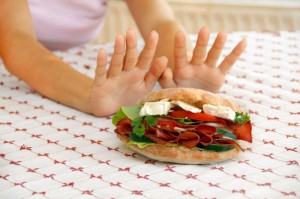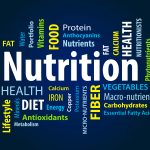How Different Types of Eating Disorders Effect Women
How Different Types of Eating Disorders Effect Women
When you look in the mirror are you hard on yourself? Do you put yourself down? If you feel that you may be suffering from an eating disorder here’s a brief description on the difference between different types of eating disorders.

“While women are most at risk of an eating disorder between 13-18 years of age, there are other times in women’s lives when they are also susceptible. The birth of a baby, menopause or a relationship breakdown can all be a trigger for body images issues and eating disorders.
Types of eating disorders
Anorexia nervosa
This eating disorder is characterized by self-starvation and an intense fear of gaining weight. Some women with anorexia nervosa severely restrict their food while others combine food restriction with other weight loss mechanisms such as vomiting, over-exercising and the use of laxatives and diuretics. As well as the psychological implications, the starvation has serious physical health issues including heart issues, osteoporosis and even death.
Bulimia nervosa
Bulimia nervosa is characterized by cycles of binge-eating and purging, over-exercising and the use of laxatives and diuretics. Unlike women with anorexia, those with bulimia nervosa may be of normal weight and, therefore, their condition may go unrecognized, sometimes for years. Despite their weight often appearing normal, women with bulimia can also experience serious physical health problems including electrolyte imbalances, ruptured stomach/esophagus and even heart failure. They also experience feelings of guilt, shame and self-loathing.
Binge eating disorder
Binge eating disorder is characterized by bingeing on food but differs from bulimia nervosa in that there is no purging afterwards. The person may instead fast or diet to compensate for the bingeing. Women with a binge eating disorder experience feelings of guilt, shame and self-hatred following a binge. Physical effects include obesity, high blood pressure, high cholesterol, diabetes, stroke, heart disease, gallbladder disease and some cancers.
Disordered eating
This refers to patterns of eating which may feature some but not all of the characteristics of other eating disorders. Women with disordered eating might always be dieting and/or generally have a relationship with food that is a source of discomfort or disruption.” To read the entire article click here.
If you’re tired of struggling with your weight and the battle of an eating disorder help is just a phone call away. Contact Barbara Cox at 775-329-0505 or visit ABCNutritionServices.com.


Sorry, comments are closed for this post.